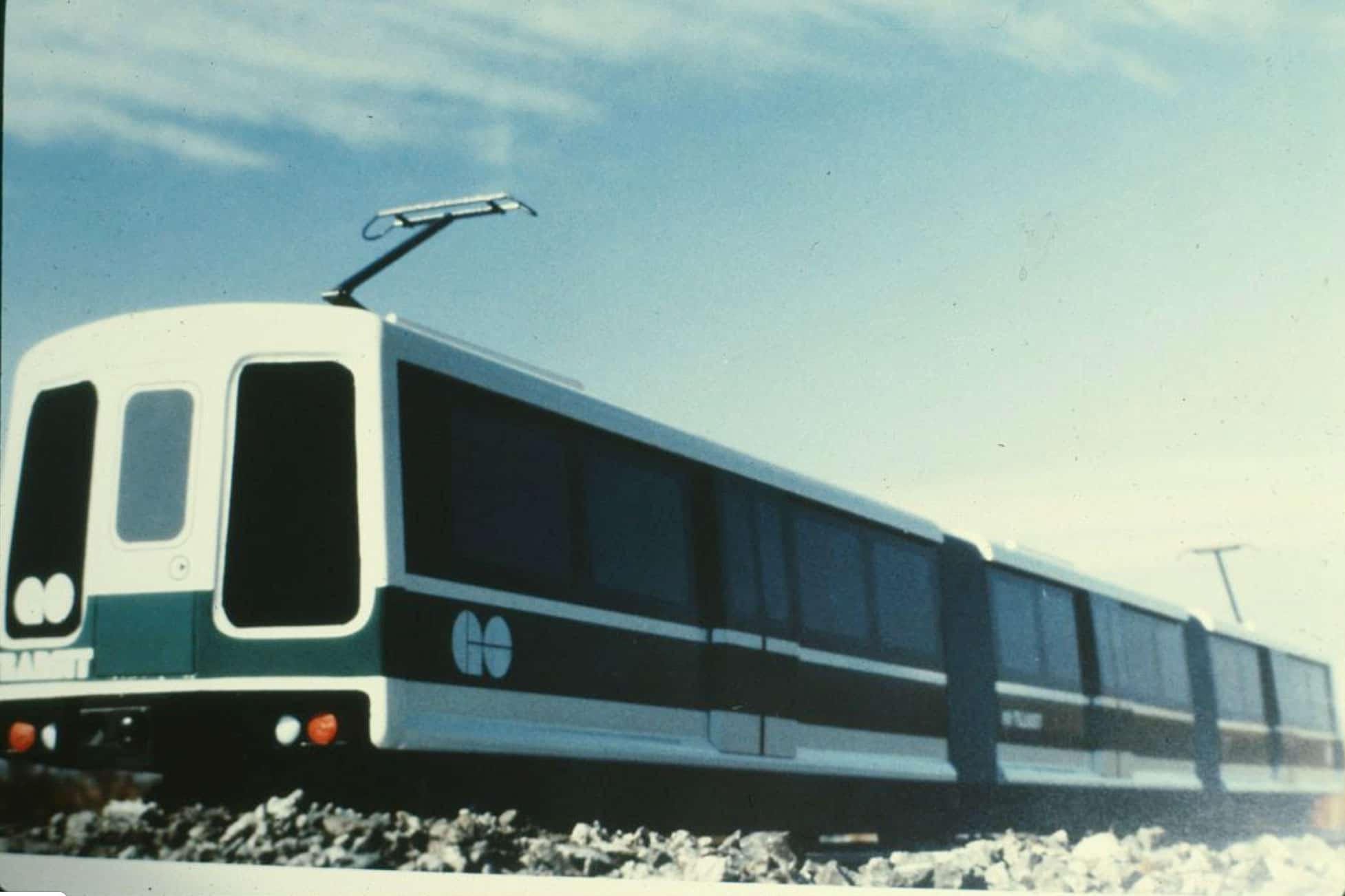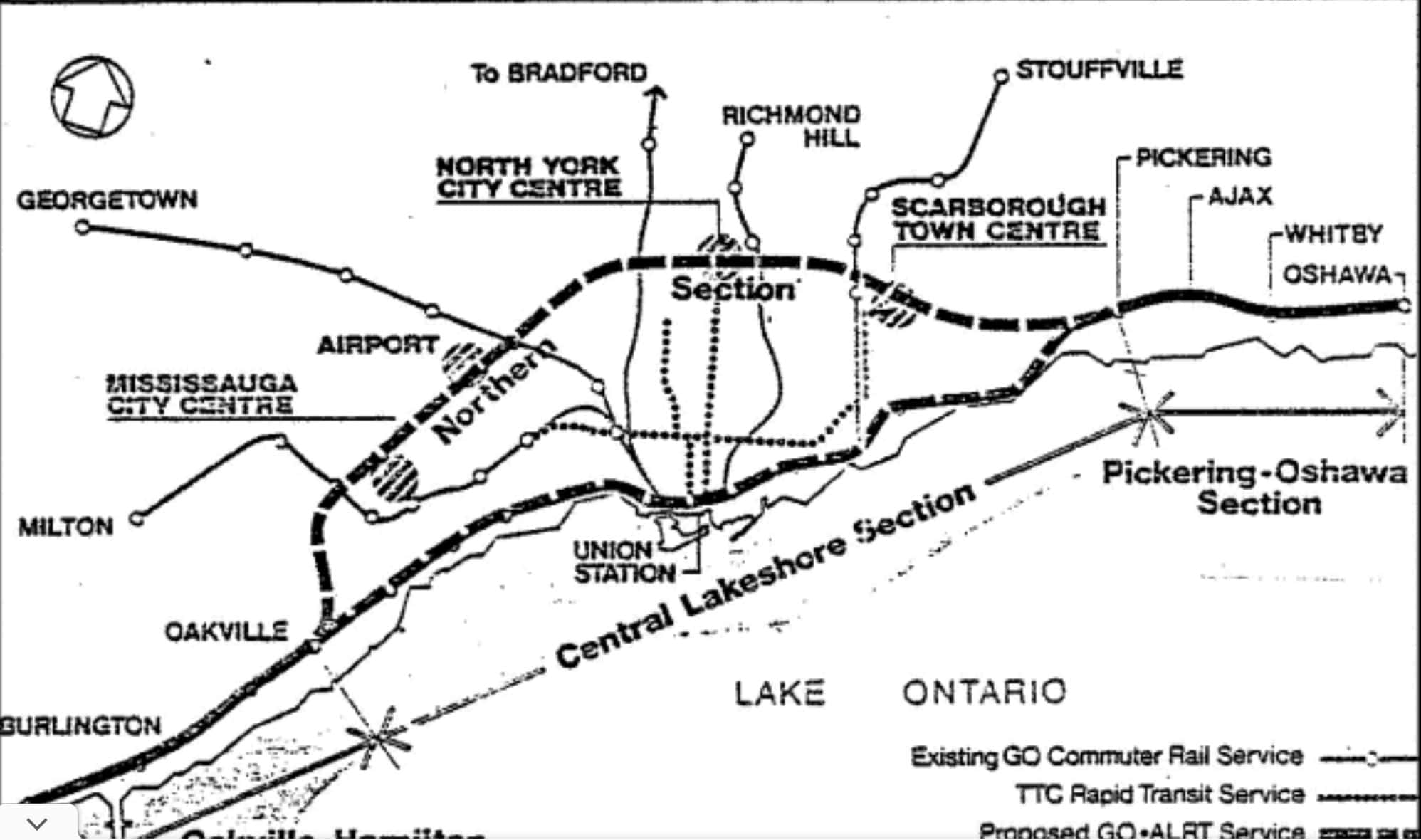History of the cancelled GO Train line through Mississauga and Brampton
Published December 29, 2023 at 11:36 am

Mississauga and Brampton could have had a unique GO train from Toronto with a stop at Pearson Airport.
The GO-Urban, later called the GO-ALRT (Government of Ontario Advanced Light Rail Transit) System was “one of the most ambitious plans” GO proposed, according to a history from GO Transit.
“This forward-thinking concept centred around a network of high-speed, driverless electric trains spanning the GTA and operating at subway speeds and frequencies,” the history continues.
After Toronto’s plans for city expressways, including the Spadina Expressway, failed, the Province of Ontario began a study on a rapid transit system in 1969, according to a post on Cancelled Toronto.
In the early 1970s, the idea of rapid transit was endorsed by Ontario Premier Bill Davis who said “Cities were built for people and not cars.”
The Province of Ontario invited eight companies to submit proposals in 1971.
Planners wanted a Maglev train — a kind of mono-rail with superconducting magnets that suspend a train car above a U-shaped concrete guideway. They selected the Krauss-Maffei Transurban maglev system out of Germany to develop the GO-Urban vehicle.
The initial plan included six lines. Two lines stretched across the GTA from Hamilton to Oshawa via two branches — one running through downtown Toronto and the other through northern North York, according to a history on the plan from Transit Toronto. Stations were to be just three kilometres apart.
One line would have paralleled (and perhaps replaced) the GO Train Lakeshore line from Hamilton to Oshawa.
The second, northern line would have run from Oakville to Pickering with stops in Brampton, Mississauga City Centre, Pearson Airport, North York City Centre and Scarborough Town Centre.

A preliminary map shows where the Go-Urban northern line would have run.
Technical and funding problems led to the cancellation of the Krauss-Maffei Transurban design in 1974. And the proposal finally died in the mid-1980s.
GO Transit says that although the GO-Urban system didn’t come to fruition, it paved the way for future innovations and enhancements.
INsauga's Editorial Standards and PoliciesDid You Know: The GO Urban Eglinton Line that was proposed in the early 1970’s had proposed extensions intending to go all the way to Central Mississauga and Brampton!
This line and it’s extensions were ultimately never built. https://t.co/jRlZIeZyei pic.twitter.com/IIjXcj6M5I— WB62 (@WBMetro62) December 27, 2023
